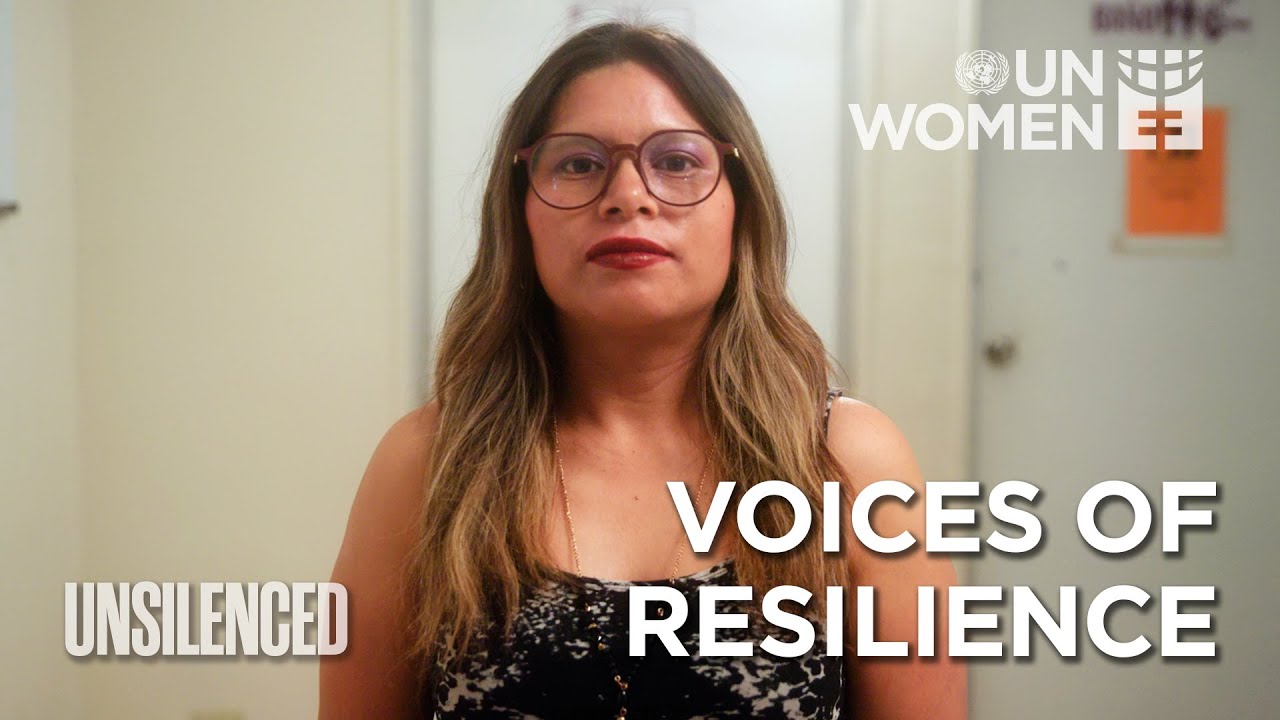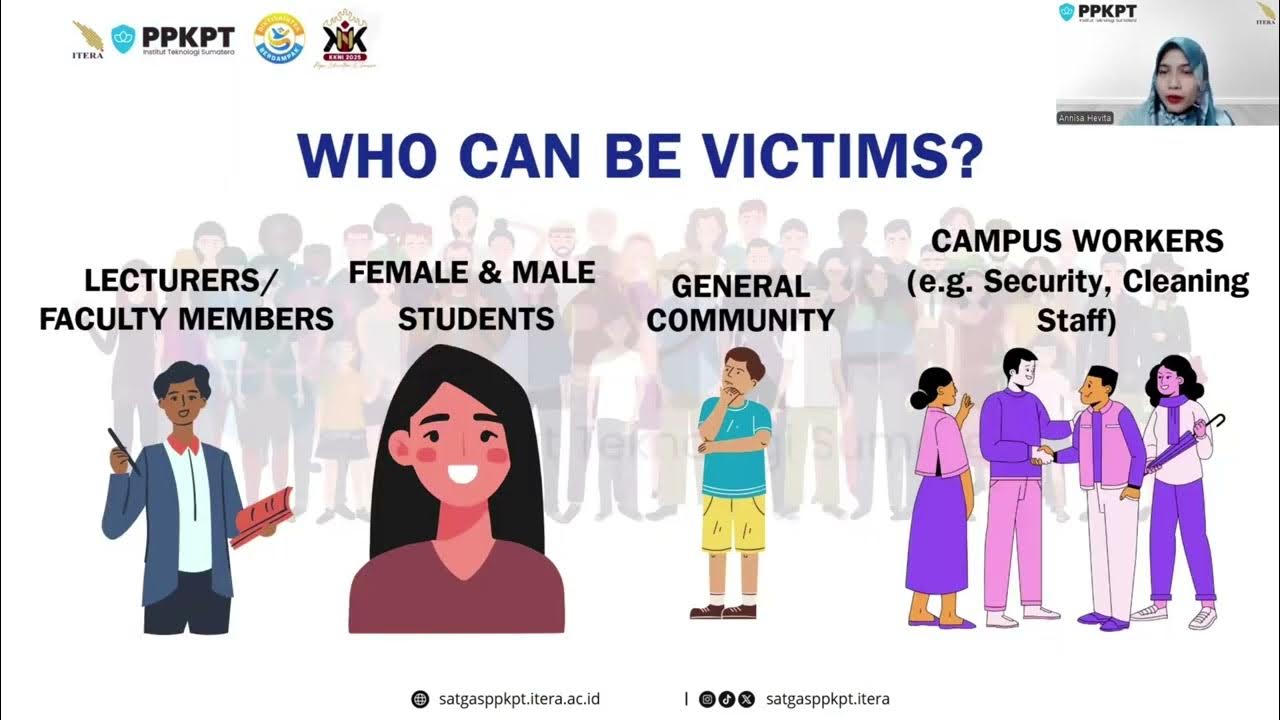Institutional Victimization of Survivors
Summary
TLDRThis class examines the re-victimization of survivors of gender-based violence in institutional settings, focusing on universities, media, and the judicial system. Through a TED Talk on Title IX and mandatory reporting, a CNN video covering the Steubenville rape trial, and a reading by Chanel Miller, the content highlights systemic issues such as victim-blaming, media trivialization of violence, and racial disparities in sentencing. The discussion critiques how institutions often prioritize their own interests, neglecting the needs of survivors and perpetuating harmful cultural norms that downplay the severity of such crimes.
Takeaways
- 😀 The TED Talk explores whether universities re-victimize survivors through the Title IX mandatory reporting requirement.
- 😀 The mandatory reporting system is critiqued for violating the consent of survivors, forcing them to relive trauma.
- 😀 Universities are shown to prioritize protecting their own image over meeting the needs of victims and survivors of sexual violence.
- 😀 Low reporting rates of sexual violence are linked to systematic discrimination against women, including victim-blaming and lack of belief in survivors.
- 😀 Prosecution rates for sexual crimes are disproportionately low compared to the frequency of such crimes, further reflecting a male-dominated justice system.
- 😀 The TED Talk also highlights the impact of gender-based violence on non-women, including LGBTQ+ individuals and men and boys.
- 😀 CNN's coverage of the Steubenville rape trial portrays the rapists as victims, focusing on their ruined futures instead of the survivor's trauma.
- 😀 The media framing of the rapists in Steubenville as good students with promising futures trivializes the impact of sexual violence and fails to address the survivor's experience.
- 😀 Cultural trends, like the trivialization of violence against women, influence how rape cases are covered in mainstream media, often focusing on the perpetrator’s life over the survivor's.
- 😀 Chanel Miller's powerful victim impact statement in the Brock Turner case highlights the systemic inequality in sentencing, with white male perpetrators receiving lighter sentences compared to Black or Hispanic men.
Q & A
What is the main theme discussed in the TED Talk mentioned in the transcript?
-The TED Talk focuses on whether universities re-victimize survivors of sexual assault, specifically addressing the Title IX mandatory reporting requirement and its impact on consent and survivors' experiences.
How does the TED Talk describe the effect of the Title IX mandatory reporting requirement on survivors?
-The TED Talk highlights how mandatory reporting under Title IX can violate the consent of survivors and re-victimize them by forcing them to relive their trauma in a system that often prioritizes institutional protection over the needs of the survivors.
What role does victim blaming and systematic discrimination play in the low reporting rates of sexual assault, according to the TED Talk?
-The TED Talk suggests that victim blaming, victim shaming, and the lack of belief in survivors contribute to low reporting rates. These factors are part of a broader pattern of systematic discrimination against women, which discourages victims from coming forward.
What is the focus of the CNN video clip about the Steubenville rape trial?
-The CNN video clip frames the perpetrators of the Steubenville rape as victims of a 'momentary lapse in judgment,' emphasizing their promising futures and portraying them with sympathy, while failing to address the impact on the survivor.
What is the critique of the CNN coverage of the Steubenville case?
-The critique is that CNN’s coverage downplays the trauma experienced by the victim, focusing instead on the perpetrators' ruined futures, which reflects a cultural tendency to trivialize violence against women and prioritize the perpetrators' well-being.
How does the TED Talk address the criminal justice system's treatment of gender-based violence?
-The TED Talk discusses how the criminal justice system, dominated by males, often trivializes women’s experiences with gender-based violence, resulting in low prosecution rates and a lack of adequate support for survivors.
What does the reading by Katie Baker cover, and why is it significant?
-The reading by Katie Baker covers the victim impact statement of Chanel Miller, the Stanford assault survivor. It is significant because it highlights the systemic racism in sentencing, showing how Brock Turner, a white male student-athlete, received a lenient sentence compared to black or Hispanic men who commit similar crimes.
How does Chanel Miller’s victim impact statement challenge the judicial system’s treatment of sexual assault?
-Chanel Miller's victim impact statement, which went viral, challenges the judicial system by highlighting the leniency given to Brock Turner and pointing out the racial disparities in sentencing, especially for black and Hispanic individuals.
What racial disparities in sentencing are mentioned in the TED Talk?
-The TED Talk points out that black and Hispanic men, particularly those who are not college-educated, are sentenced to longer prison terms for crimes like sexual assault, in contrast to white male college students who often receive lighter sentences, highlighting systemic racism.
What overall message does the TED Talk convey about institutional priorities?
-The TED Talk emphasizes how institutions, including the media, the judicial system, and colleges, often prioritize the lives of white, male, college-educated individuals over the well-being and justice for victims, especially those who do not fit this identity.
Outlines

This section is available to paid users only. Please upgrade to access this part.
Upgrade NowMindmap

This section is available to paid users only. Please upgrade to access this part.
Upgrade NowKeywords

This section is available to paid users only. Please upgrade to access this part.
Upgrade NowHighlights

This section is available to paid users only. Please upgrade to access this part.
Upgrade NowTranscripts

This section is available to paid users only. Please upgrade to access this part.
Upgrade NowBrowse More Related Video

Gender Based Violence (GBV) in Emergencies

UNSILENCED: Stories of Survival, Hope and Activism | Episode 1: Voices of Resilience (Documentary)

GCSE Sociology Revision from allsociology - Educational Achievement (Episode 9)

PPKPT part 1

Magdalene chief editor touches on challenges in Indonesia for female field journalists

Degrees of Abuse – Harriet’s Oxford Story | Al Jazeera Investigations
5.0 / 5 (0 votes)